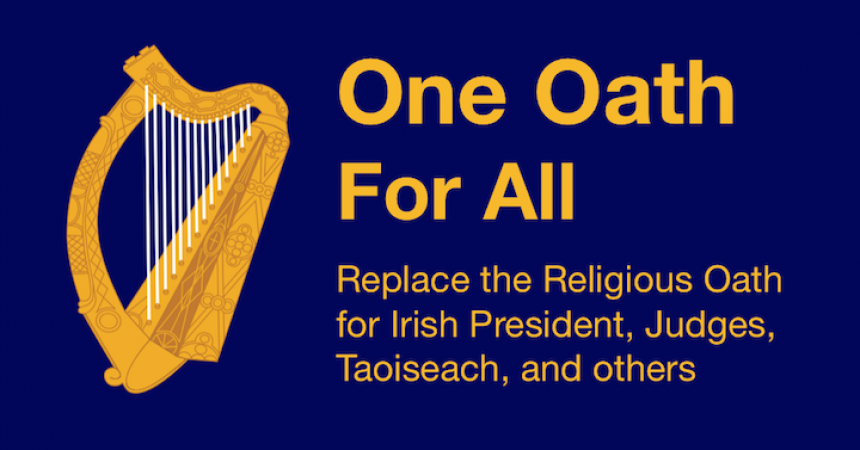
The religious oaths in the Irish Constitution for President and members of the Council of State still contravene human rights law, and today’s ruling by the European Court of Human Rights has not found otherwise.
Indeed, the European Court has previously found in the cases of Dimitras and Others v. Greece and Grzelak v Poland, that being forced to reveal your beliefs in order to avoid taking a religious oath, or being compelled to assume a stance from which it may be inferred whether or not you you have religious beliefs, is contrary to the human right of freedom of thought, conscience, and religion.
All that the European Court has ruled is that the five specific people who took the legal challenge could not show that they personally were likely to be elected President of Ireland, or invited onto the Council of State, and that they personally had therefore not been victimised.
This means that a legal challenge against the oaths would probably require someone to be elected as President or be invited onto the Council of State, then refuse to swear the religious oath and takes a legal case to the European Court.
Atheist Ireland continues to campaign on this as a political issue. We run a One Oath for All Campaign. We want holders of public office to make a declaration to uphold the Constitution, with no reference to their personal religious or nonreligious beliefs.
This remains an important political campaign, as the Taoiseach and Tanaiste have to swear a religious oath, as they are member of the Council of State. When Eamon Gilmore was Tanaiste his legal advice was that he had to swear the oath in order to remain Tanaiste.
It is disgraceful that the Irish Government argued at the European Court that these religious oaths are “necessary in a democratic society.” Is this how the Government of a Republic politically treats citizens who are conscientious atheists or secularists?
Both the United Nations Human Rights Committee and the European Court of Human Rights have made clear that the State must respect the right to freedom of conscience and religious belief, in law and in practice, on a non-discriminatory basis.
Atheist Ireland raised this issue with the United Nations Human Rights Committee in 2014, and the Human Rights Committee concluded that:
“The State Party should take concrete steps to amend articles 12, 31 and 34 of the Constitution that require religious oaths to take up senior public office positions, taking into account the Committee’s general comment No. 22 (1993) concerning the right not to be compelled to reveal one’s thoughts or adherence to a religion or belief in public.”
As recently as last October, the UN Human Rights Committee told Ireland:
“Please report on the measures taken to ensure that the right to freedom of conscience and religious belief is fully respected, in law and in practice, on a non-discriminatory basis… Please indicate whether there have been any changes to the constitutional provisions requiring persons who take up certain senior public positions to take religious oaths.”
The European Court of Human Rights has consistently found that the right to freedom of religion and belief is one of the foundations of a democratic society. The Court has also held that the right to manifest your religion or belief has a negative aspect.
This means that the State cannot oblige you to disclose your religion or beliefs. Nor can it oblige you to act in such a way that it is possible to conclude that you hold, or do not hold, religious beliefs. That is intervening in the sphere of your freedom of conscience.
We have removed the law against blasphemy. That is one step towards a secular State that respects equally everybody’s right to freedom of conscience. Removing these anachronistic religious oaths from our Constitution is the next step.